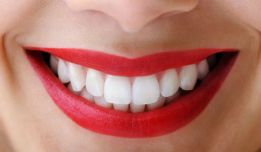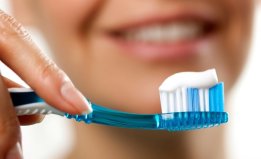Are you looking for family dentistry in the Melbourne CBD area? Our Melbourne dental clinic offers a complete range of dental solutions for the entire family.
A family dentist will offer general dentistry services for all age groups. From a young child to a senior citizen, a family dentist is available for all your basic dental needs. This includes teeth cleaning, emergency dental services, and possibly cosmetic dental or restorative dental work.
You should regular checkups about twice per year. This is the general recommendation of the ADA (Australian Dental Association). These checkups typically include a teeth cleaning, x-rays of your teeth, and an examination of the health and care of your teeth and gums.
If your dentist detects any dental issues, he or she will likely recommend a follow-up procedure. This could be restorative or preventative dental work that is carried out in-office or through a referral to another dental practice.
Along with proper dental hygiene, regular checkups can limit your chances of developing tooth decay, gum disease, and other issues. These regular visits are a form of preventative dental care. Early detection and treatment will help you and your family to prevent gum disease, the buildup of plaque, and tooth decay.
Family Dentistry for Your Children
Families typically choose family dental practices because of the convenience. Your entire family can receive dental services from a single facility. At the same time, family dentists are qualified to handle the special needs of younger patients.
The care of baby teeth and growing permanent teeth require additional care and examination compared to fully-formed adult teeth.
Dentists will want to examine several specific areas while performing a check-up on a younger patient. This can include:
- Examining the growth and formation of teeth
- Educating you and your child on the proper dental hygiene techniques
- Recommendations on food and drinks to avoid for better dental health
- Advice on how to deal with an emergency dental situation
- Custom dental treatment based on your child’s current age and health
As your child’s teeth grow and erupt through the gums, your dentist will be able to monitor their growth. He or she can look for signs of tooth crowding and other issues that may need to be addressed. This could include the use of braces of retainers to correct dental problems.
The general recommendation is that you take your child to a dentist after the first tooth appears. If this doesn’t occur before their first birthday, then you schedule a dental visit. Dental care for children varies from dental care for adults. The enamel on permanent teeth is still soft. This makes children’s teeth more susceptible to erosion and cavities.
Commonly Asked Questions About Proper Dental Care for Children
Along with the information already provided, you may have a few more questions about proper dental care for your child. It is important to bring these questions up when you visit your dentist. In the meantime, here is a closer look at the most frequently asked questions about proper dental care for children:
How Should You Clean Your Baby’s Teeth?
You should use a toothbrush with soft bristles and a smaller head. When shopping for toothbrushes, you should search for brushes that are made specifically for children in your child’s age group.
For children under 3, you will use a very small dab of toothpaste. The toothpaste should roughly be the size of a grain of rice. It should also have a limited or reduce the amount of fluoride.
When Should Your Child Get Their First Dental Checkup?
When the very first tooth erupts, you should schedule an appointment with your family dentist. Though, if the tooth doesn’t come in by the time they are 12-months old, you should schedule your first visit.
What Should You Do if Your Child Loses a Tooth?
If your child loses a baby tooth, you should have nothing to worry about. Though, if the baby tooth is knocked out by force, minor bruising could occur near the gums. The main concern is what you should do in the event of a knocked out permanent tooth. First, you should find the tooth. Do not touch the root of the tooth.
If possible, try to insert the tooth back in the socket. The saliva can help protect the tooth until you are able to visit the dentist. This should only be done in an emergency situation and with children over the age of 6 to 8.
If you cannot visit the dentist immediately, you should clean and soak the tooth in milk. Place the tooth in a container.
There is a chance that the tooth could be saved. The sooner you can visit your family dentist the better the chances. For this reason, you need to see if your local dentist offers emergency dental services. These same tips apply for a chipped or broken tooth. Visit your dentist as soon as you can.
Is it Safe for Your Child to Be Exposed to X-Rays?
X-rays are taken in order for dentists to fully examine the condition of your child’s teeth. They can examine the roots, the structure of the teeth and jawbone, along with other details that are difficult to detect with the naked eye. X-rays pose virtually no risk to your child’s health. Your child is only exposed to a minimal amount of radiation for a very limited amount of time. Lead aprons are used to further reduce this exposure.
Is Thumb-Sucking Bad for Your Child’s Teeth?
If your child still sucks his or her thumb after the age of 2, you should break the habit. Thumb sucking can cause teeth to crowd or result in crooked teeth. This can also lead to bite problems.
Final Thoughts on Family Dentistry and Pediatric Dental Care
In addition to the FAQ, there are a few more tips for protecting the health of your children’s teeth. Use these tips, along with proper oral hygiene and regular checkups.
- Limit the consumption of sugary drinks and snacks
- Make sure you follow your dentist’s recommendations for the use of fluoride toothpaste
- Create a dental care routine that will help your child develop positive oral hygiene habits for life
- You should also limit the use of bottles after the age of one-year, as this can cause teeth to come in crooked or impact your child’s bite
- Always monitor your child while brushing or flossing, until they are about 8-years of age
As a final reminder, don’t forget to schedule a visit with your dentist after your child’s first tooth comes in. You should schedule the appointment no later than 6-months after the tooth appears.






